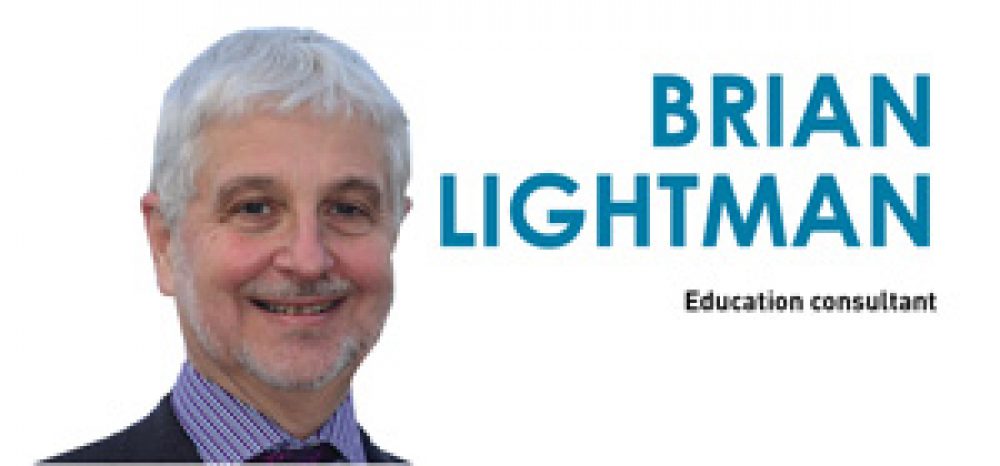The ECDL, as promoted by the schools network, the PiXL club, is a valuable qualification for many students, says Brian Lightman – one that should prompt Ofqual to think carefully before placing further constraints on awarding bodies
Ask any employer what they want from a qualification and they will tell you they want it to evidence the degree to which a candidate has demonstrated an understanding or mastery of the content of the specification. Understandably, they become frustrated when a prospective employee with a certified qualification is not able to do this.
Various factors can explain this, not least the fact that “mugging up” the content before an examination does not guarantee that this content will be remembered forever. We all forget things! It was ever thus.
More significantly, however, qualifications policy during the past five years has steadfastly moved away from a position where that aim will be fulfilled. Instead of assessment being at the heart of pedagogical practice, policymakers view it primarily as a means of holding schools to account. Where results are “capped” in the name of “rigour”, and where grade boundaries are largely a statistical
construct, it is not possible to guarantee that a candidate who has mastered X will gain a grade Y.
A deep philosophical question underpins this: “should qualifications open doors inclusively to anyone who reaches a given standard or should they be gatekeepers to the preserve of an elite as the old O-levels and university matriculation once were?”
In a recent announcement, Ofqual instructed awarding bodies to revisit the time it takes to prepare students for a qualification. It would seem that the worthiness of some qualifications on the list approved by the Department for Education (DfE) and, in one case, an internationally recognised one, has been called into question.
The reason for this investigation has nothing to do with the knowledge or skills those achieving these qualifications might have demonstrated by passing the exam, but instead relates to the amount of direct teaching candidates have received in preparation for the test. This contradicts concerns the same regulator and others have often expressed about “teaching to the test”, often referred to as “gaming”. There is a fine balance between good teaching and bending the rules or cheating. Yet it seems that emerging policy could be placing teaching to the test at the heart of curriculum planning.
Education is at the heart of the church’s mission
Most importantly, where does this leave the accreditation of prior learning, a widely accepted aspect of many respected qualifications? Does it, for example, mean that, when I learnt the violin as a child I would not have been allowed to take my grade exams unless I had had a set amount of teaching rather than taking the test when I was ready? Does it mean that I should have been required to attend a further course before taking the final diploma of the Institute of Linguists even though I had a degree in German and was able to gain that valuable professional qualification without doing so? Are we going to force anyone seeking a professional qualification or degree to jump over time-consuming hurdles when their CV plainly evidences that they do not need to be retaught some sections of the course? Wouldn’t that be a cap on aspiration and a waste of valuable time that could be spent on learning something new?
One qualification under scrutiny is the European Computer Driving Licence (ECDL), a topic extensively reported in Schools Week. ECDL is an internationally recognised qualification that the government’s national careers service strongly recommends. Indeed its website states: “if you have passed ECDL, employers know you have the skills to carry out the main tasks on a computer . . . and it looks great on your CV.” The same website continues: “If you’re confident you already have the skills needed for the ECDL, you don’t need to undertake any training. You can just sit the test at an approved centre.”
What could possibly be wrong with equipping young people who have no other formal qualifications evidencing these skills with such a valuable qualification that demonstrates competences they have developed throughout their schooling and that are needed in almost every job?







If graduation was moved to 18 then pupils could approach graduation via multiple routes. This could include the ECDL or even the UK driving test. The problem comes when such exams are given an ‘equivalence’ for league table purposes. The answer is clear: scrap league tables; judge exams on their own merit and allow accredited qualifications, prior learning, practical experience, voluntary work, Duke of Edinburgh Awards and similar, national careers service etc to be included in a graduation portfolio.
Ooops, ‘national careers service’ should have read’ National Citizen Service. I should have known better – I wrote about it here: http://www.localschoolsnetwork.org.uk/2016/01/money-pledged-by-pm-for-national-citizen-service-wasnt-new-money
After working in education for many years and delivering the ECDL syllabus, I would say it is an ideal qualification to prove to prospective employers that the candidate is literate in ICT. I also found that although learners had previous knowledge of the module applications undertaken, they still required training to be able to increase their productivity to complete the examinations within the given timescale.